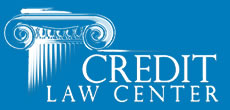How Could You Be Hurting Your Credit?
The more you know about how credit works, the better your score will be. This is because, without a lot of background knowledge, your own logic and reasoning will oftentimes fail you. There are a lot of factors that go into creating your credit score, so trying to make decisions when it comes to your credit without studying up first can be tricky. There are five big mistakes a lot of consumers often make because, without any background knowledge, they all sound perfectly reasonable.
1. Close A Credit Card
Just because you don’t really use your card does not mean you should close it. Closing a credit card will stop any subsequent reporting of positive credit and payment history and positive credit utilization. Keeping a card open, even if you rarely use it, can be beneficial. Be sure to use your card every once in a while, be it for a cup of coffee or a drive through sandwich. This will keep activity on the account and keep the card holder from deactivating the account.
2.Believing that Paying on Time is All You Need for A Good Credit Score
Yes, paying off all your credit card debt on time is good for your credit score, but that is not all it takes to have what is considered a quality credit score. If you are using a huge portion of your credit limit every month, even paying it off completely and on time will not be as beneficial as lowering your credit utilization ratio would be. Your credit utilization ratio is one of the biggest factors that goes into creating your credit score, and the lower is it, the better your credit will be. So, keeping your utilization ratio under 30 percent per credit limit will benefit you even more when it comes to your credit.
3. Pay Off A Loan Early
It definitely can benefit your finances to pay a loan off early, especially if you are paying a very high interest rate on the loan, but this can also hurt your credit score. It would be very easy to think that paying a loan off early would help your credit, but in reality, it lowers your credit mix and therefore lowers your credit score. So, if the interest rate on your loan is not burdening you financially, then you will actually benefit from not paying a loan off early.
4. Reject Higher Credit Limits
The only reason you should reject a higher credit limit is if you know you will not be able to stop yourself from overspending because of it. Otherwise, keeping your spending at a consistent rate while also increasing your credit limit will raise your credit score because your credit utilization ratio would then be lower. So, accepting a higher credit limit will in most cases raise your credit score if you can keep yourself from overspending.
5. Send in Partial Payments
Paying off a debt partially does not put you in better standing with the debt collectors or the credit bureaus. You will still be reported as paying late and are at risk for a delinquency on your credit report. So, if you are struggling to pay your minimums every payment cycle, talk to a credit counselor before trying to appease the creditor by only paying partially.
Other Factors Causing A Drop
- Late payments
- High Balances
- Too many Inquiries
- Late reporting (possibly your credit cards reporting at different times to the credit bureaus. An easy fix to this is call your credit card and ask them when they report to the bureaus so you know when to make payments so your score reflects better)
- Paying an old collection (there is less than a 2% difference whether a collection is paid or unpaid, most weight is given to how recent the activity)
Do you have questions about your credit report? If you would like to speak with one of our attorneys or credit advisors and complete a free consultation please give us a call at 1-800-994-3070 we would be happy to help. If you are hoping to dispute and work on your credit report on your own, here is a link that provides you with a few ideas on how to go about DIY Credit Repair.

